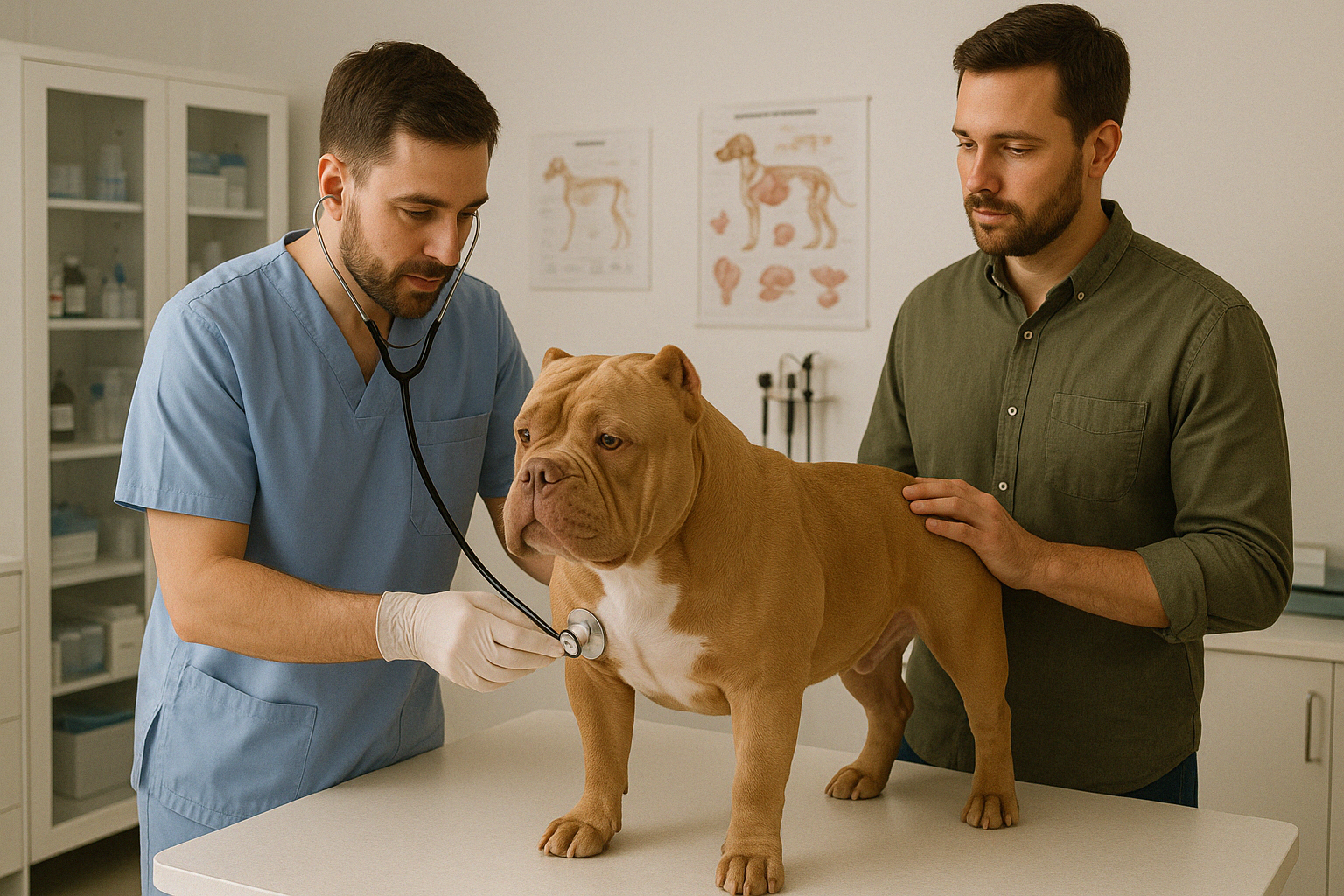Many dog owners associate vet visits only with vaccines or emergencies, mas a proactive approach to veterinary care is one of the best ways to ensure your dog lives a long, healthy life. Routine checkups aren’t just about prevention — they’re about building a health history, catching problems early, and supporting your dog’s well-being through every life stage.
In this article, we’ll explore why regular vet visits matter, what to expect, how often to go, and how these appointments can make a lasting difference for your dog.
Why Preventive Care Matters
Just like with humans, early detection is key in veterinary medicine. Dogs are excellent at hiding pain and illness — by the time symptoms are obvious, the condition may already be advanced.
Routine exams help identify:
- Dental disease
- Heart conditions
- Obesity and metabolic issues
- Skin infections or parasites
- Joint problems
- Organ dysfunction (kidneys, liver, thyroid)
Preventive care is less stressful, more affordable, and more effective than treating advanced illness.
How Often Should You Take Your Dog to the Vet?
Puppies (under 1 year):
- Initial visit around 6–8 weeks
- Follow-up vaccine boosters every 3–4 weeks
- Spay/neuter consultation
- Monthly weight and growth tracking
Adult dogs (1–7 years):
- Once a year for a full physical exam
- Vaccination boosters as recommended
- Parasite checks (heartworm, fleas, ticks)
- Dental assessment
- Lifestyle and diet review
Senior dogs (7+ years for large breeds, 10+ for small):
- Every 6 months, even if healthy
- Blood work and urinalysis to detect early disease
- Joint mobility and pain checks
- Weight and appetite monitoring
- Screening for age-related illnesses (cancer, cognitive decline)
Your dog’s needs change with age — their veterinary schedule should change too.
What Happens During a Routine Vet Visit?
A standard wellness visit typically includes:
- Physical Exam:
- Eyes, ears, mouth, teeth
- Coat and skin
- Heart and lungs
- Abdomen and organs
- Joints and muscle tone
- Weight and body condition
- Vaccinations:
- Core vaccines (rabies, distemper, parvovirus)
- Non-core vaccines based on lifestyle (bordetella, leptospirosis, Lyme)
- Fecal exam and parasite control:
- Testing for worms or giardia
- Monthly preventatives for fleas, ticks, and heartworm
- Blood tests (especially for adults and seniors):
- Internal organ function
- Thyroid levels
- Baseline health markers
- Dental check:
- Look for tartar, gingivitis, or broken teeth
- Discuss at-home care or dental cleanings
- Behavioral and lifestyle questions:
- Appetite, energy, sleep, habits
- Social behavior and anxiety
- Exercise and activity levels
These visits are also a time to discuss your dog’s diet, supplements, grooming, and environment.
Building a Health History
Annual or semi-annual visits help your vet track:
- Weight trends
- Heart rate and rhythm
- Bloodwork over time
- Changes in behavior or appearance
This history allows early detection of gradual changes — like slow kidney decline or arthritis — that may not be visible day-to-day.
The Role of Vaccinations
Vaccinations protect against serious (and often fatal) diseases. Keeping up to date is essential, especially if your dog:
- Spends time at parks, daycare, or boarding facilities
- Travels
- Lives in areas with wildlife
- Is a puppy, senior, or has a weak immune system
Discuss with your vet which vaccines are necessary based on your dog’s exposure risk.
Dental Health Is Health
Periodontal disease affects most dogs by age three. Regular vet visits help catch:
- Plaque and tartar buildup
- Gum inflammation or recession
- Loose or broken teeth
- Oral tumors
Some dogs require annual dental cleanings under anesthesia. Your vet can guide you on at-home brushing, dental chews, or specialized diets.
Weight and Nutrition Guidance
Obesity is one of the most common preventable health issues in dogs. Routine checkups help:
- Monitor weight over time
- Calculate daily calorie needs
- Recommend portion sizes and food types
- Address feeding habits and treat limits
A healthy weight reduces the risk of joint issues, diabetes, and heart disease.
Parasite Control and Prevention
Fleas, ticks, and intestinal worms aren’t just annoying — they carry disease.
Regular vet care ensures:
- Year-round protection with preventatives
- Prompt treatment if parasites are found
- Fecal testing to detect hidden infections
Some parasites can affect humans too (zoonotic diseases), making prevention even more important.
Behavior and Mental Health
Don’t hesitate to discuss behavior concerns during wellness visits:
- Anxiety or reactivity
- Compulsive behaviors
- Age-related cognitive changes
Your vet can offer guidance, recommend trainers or behaviorists, or suggest calming supplements or medications when appropriate.
Preparing for a Vet Visit
To get the most out of your appointment:
- Bring a list of questions or concerns
- Take note of changes in appetite, energy, behavior, or potty habits
- Bring a fresh stool sample if requested
- Make sure your dog is leashed or in a carrier
- Stay calm — your dog can sense your energy
If your dog is fearful, consider vet clinics with fear-free certification or ask about sedation for high-stress dogs.
The Human Side of Vet Visits
Your relationship with your veterinarian matters. A good vet:
- Communicates clearly
- Listens to your observations
- Respects your knowledge of your pet
- Helps you make informed choices
Don’t be afraid to seek a second opinion or find a new vet if needed. Trust is key in your dog’s long-term care.
Final Thoughts
Routine vet visits are one of the most important things you can do for your dog. They prevent suffering, catch illness early, and ensure your dog stays happy, mobile, and vibrant at every age.
When you make health a habit, you give your dog more than care — you give them a future full of comfort and quality.

